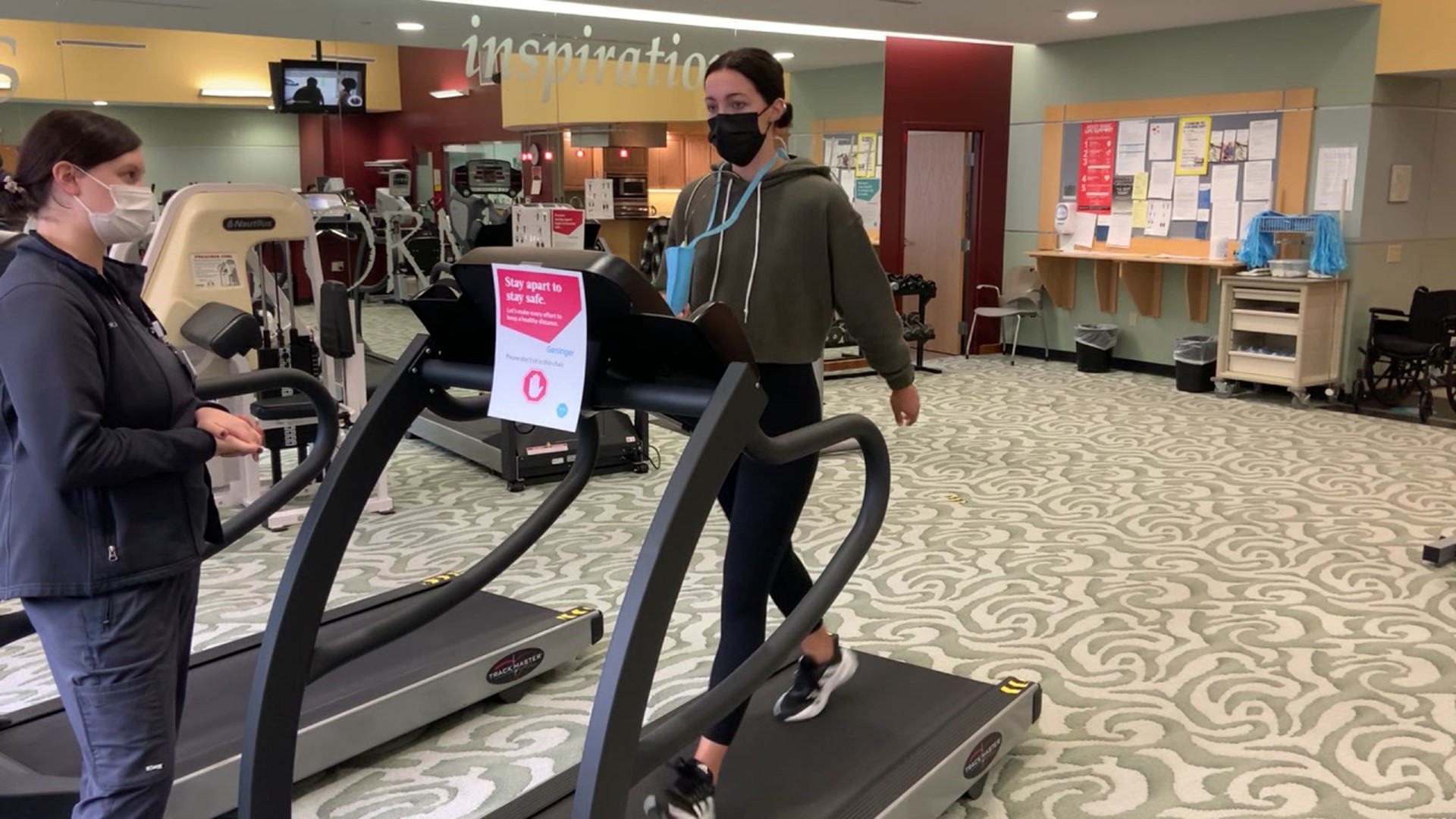LUZERNE COUNTY, Pa. — For 30-year-old Kayla Wolthoff of Luzerne, living a healthy lifestyle and teaching are her passions.
In May, Kayla began not feeling like her usual, energized self.
"Really bad pain in my chest, my back, my arm, and I thought I was having really bad heartburn," said Kayla.
After months of persistent symptoms, August 22 will forever be a life-changing day.
"I teach classes at the Salt Barre. So, I taught my class, and I was on my way home, and the pain always starts in my back. I was like, 'Great, it's going to be a bad day.' Because I knew it was going to be a bad day when I felt the pain in my back," Kayla recalls.
Kayla returned home and took a shower to see if that would ease her pain. She tells Newswatch 16 that's when she began vomiting, also feeling clammy and dizzy.
Kayla went to the emergency room at Wilkes-Barre General Hospital, where she learned she was suffering from a rare condition known as spontaneous coronary artery dissection (SCAD).
"The actual artery had torn, and the walls of the artery had separated, which formed a very large clot, which then pushed the lumen of the artery and obstructed blood flow to the entire left side of the heart," explained Dr. Brendan Carry, a heart failure cardiologist with Geisinger.
SCAD triggered a heart attack.
Doctors placed several stents in her heart, but Kayla was going into heart failure. She was later flown to Geisinger Medical Center in Danville for more aggressive treatment.
"The fact that she was there so early, was, I think, how she make it out of this. If she was at home when this happened, I think there is a high likelihood that she would not have survived," said Dr. Carry.
When she arrived in Danville, doctors hooked Kayla up to an ECMO machine. Her care team says it's the highest form of life support. It allows a patient's heart and lungs to take a break, by pumping and oxygenating blood outside of the body.
"When we're on the phone getting this call 30-year-old yoga teacher, very fit, very active, it doesn't fit the picture of somebody we usually get calls for that require this aggressive of therapy," said ECMO coordinator Evan Gajkowski.
"This is exactly the type of patient who we have these resources in place for. So that when these sick patients come into our local hospitals, we have a chain of command in place in order to get them high levels of care that can lead to such immensely, wonderful outcomes," said Dr. Eva Vaishnav, heart failure cardiologist with Geisinger.
After some time in the hospital, Kayla was able to go home and begin cardiac rehab.
Now through her recovery, she's become an advocate for SCAD research.
"Once again, the heart attack was a side effect of that, and I think that is the craziest thing to wrap my head around, because it happens to young, healthy individuals, specifically more women, and they don't know what causes it. That's why I am here talking about it," said Wolthoff.
See more Healthwatch 16 stories on YouTube.

